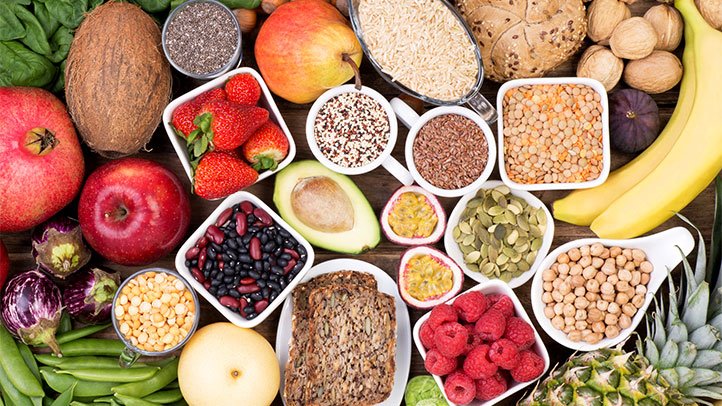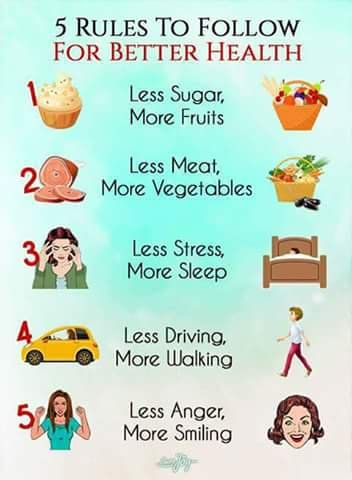
It is well known that exercise can increase longevity. Research shows that exercising can reduce the chance of death and chronic diseases. Also, regular exercise is good for our cellular health. As we age, our telomeres get shorter. When we exercise, our telomeres get longer. That's important to know as aging cells are not as healthy as those that are physically active.
These results are flawed because most participants rated their exercise moderately or even vigorous. The self-reported factor was not taken into account as most people tend underestimate the intensity and duration of their workouts. In addition, the study involved only self-reported data, which means that participants were not wearing activity trackers or heart rate monitors to measure their physical exertion. It is clear that this practice is beneficial for longevity as it reduces the chances of developing chronic diseases and strokes.

Moderate-intensity exercises are an essential part of a healthy life style. According to a study published in The New England Journal of Medicine, 150 minutes of moderate activity each week can extend a person's life by seven years. This effect was observed regardless of age, gender, or other health conditions. Whether you are a beginner or an experienced athlete, it's important to work out regularly to prevent health problems.
The best way to reduce your risk of certain diseases is to exercise. It can also lower the likelihood of certain diseases such as type 2 diabetics. Although studies have shown that those who exercise regularly live longer, experts advise that they continue to exercise for the long term. But there is one problem! You should choose the right exercises to avoid side effects.
It is important to remember that everyone has different bodies so what works may not work well for you. It's a good idea to find an exercise that you love in order to increase your exercise. If you love the activity, it will be easier to continue with it. If you love exercise, it will be more enjoyable for you. You will be more energetic and more likely to enjoy your exercise. If you do something you enjoy, you're more likely to stick with it.

Exercise can extend your life. Moderate to vigorous exercise has many benefits. A single hour of brisk, vigorous walking each week is equivalent of 150 to 299 hours of intense exercise per week. This activity takes a lot less time than doing other things like laundry or watching television. You'll live longer if you do it often.
FAQ
Is it true that overeating protein causes kidney stones?
Protein helps maintain healthy bones and tissue. Over-consuming protein can result in calcium being excreted through the kidneys. This can lead kidney stones.
It's important to note that not everyone gets kidney stones after eating more than 2 grams of protein per kilogram (2.2 pounds) of body weight. It is possible to eat high levels of protein without developing kidney stones.
Your sodium intake can prevent kidney stone formation. Sodium regulates the body's water balance. Too much sodium results in a higher risk of developing kidney stones.
If you have kidney stones, you can reduce your intake of protein. About half of adults' daily caloric intake is made up of protein. It is possible to lose weight by cutting down on your intake of proteins.
If you do decide to eat more protein, don't go overboard. Aim for less than 20% of total calories from protein.
What food should I avoid if I want to lose weight
Avoid trans fats. Trans fats raise LDL (the bad) cholesterol levels and reduce HDL (the good) cholesterol levels.
Trans fats may be found in deep-fried, fast food, packaged bake goods, snack cakes, or other processed food.
These unhealthy fats are also known to cause inflammation and lead to heart disease as well as diabetes.
Foods containing artificial sweeteners should also be avoided. Artificial sweeteners have been linked to an increase in cancer risk.
They are found in everything, from soft drinks to chewing tobacco to candy bars. They also appear in meat, poultry and eggs.
Artificial sweeteners include saccharin.
The American Heart Association suggests that you avoid these chemicals as they can cause DNA damage in your cells.
How To Lose Belly Fat Fast
There are many ways to quickly reduce belly fat. One method is to eat less and drink lots of water.
You can also increase your metabolism through activities like running or swimming.
To quickly reduce belly fat, avoid sitting too much. Instead, stand up frequently throughout the day. This will help reduce calories.
If you are having trouble losing belly weight despite trying all of these methods, there is another way.
This is done by using a device called the belt. The belt works by tightening around your waist when you sit down.
This will make you feel uncomfortable and allow you to move about. This encourages you to burn calories and decrease your belly fat.
Statistics
- 10 pounds in a month is likely during a lean bulking phase, especially for beginners. (muscleandstrength.com)
- Candidates and applicants must pass all four tests at 70% (minimum level) to graduate from Basic Deputy U.S. Marshal (BDUSM) Training. (usmarshals.gov)
- According to the American Academy of Dermatology (AAD), men over 50 are at a heightened risk of developing it. (healthline.com)
- An estimated calorie range for moderately active adult males falls between 2,200 to 2,800 calories per day, depending on age. (eatright.org)
- Get free shipping and 25% off today. (healthline.com)
External Links
How To
How do I lose weight while working out?
Exercise can help you burn calories and increase your metabolism.
Exercise at a moderate intensity to safely lose weight.
These tips will help you burn fat and keep fit while exercising.
-
Do cardio exercises such as walking, swimming, jogging, cycling, running, or elliptical training.
-
For 30 minutes, do it three times a week.
-
You can add strength training into your exercise routine if you're looking to lose even more weight.
-
Avoid intense workouts. You can build muscle without having to lose muscle tissue.
-
During exercise, drink plenty of water. Water helps to flush out toxins from the body and maintains proper hydration.
-
After working out, drink low-fat protein shakes. Protein shakes help repair muscles and boosts energy.
-
Take smaller meals throughout each day to avoid feeling hungry.
-
Don't skip breakfast! Skipping breakfast can cause you to feel tired and sluggish.
-
Mental health is important. Stressful situations can slow metabolism.
-
Keep a positive attitude. Studies have shown that people who are convinced they are overweight gain more weight than those who feel they look attractive.
-
Sleep enough. A lack of sleep makes it difficult to lose fat.
-
Keep active. Get up every hour and get moving.
-
Maintain a healthy diet. You will feel fuller longer if you eat right.
-
Find ways to relax. Tenseness can cause stress hormones to break down muscle tissue.
A balanced diet is one that includes all of the essential nutrients required for growth.
Instead of eating three large meals a day, eat six smaller meals every day. This gives your body time and energy to process the food.
To maintain strong bones, you need to consume 500 mg of calcium each day. Calcium can also be found in milk products, yogurt, fortified Soy beverages, orange Juice, cereals and bread.
Calcium can be found in leafy green veggies, beans, tofu and nuts as well as seeds, nuts and cheese.
Vitamin D is required by the body to absorb calcium. Vitamin D is found in certain fortified foods, such as egg yolk and fatty fish.
Vitamin E is crucial for skin health. It can be found as a vegetable oil, wheat germ, peanuts or almonds.
Your body needs zinc to maintain normal immune function and heal wounds. Zinc can be found in seafood, legumes and meats.
Zinc deficiencies can lead to fatigue, decreased appetite, depression, and reduced immunity.
Sugar intake can lead to insulin resistance which causes blood glucose levels to rise. Insulin resistance is linked to weight gain.
When there is a high level of free radicals, insulin resistance can develop. Free radicals are molecules that have unpaired electrons, which can cause damage to cell membranes or other parts of your body.
The main sources of free radicals are food additives.
Free radical damage can lead to cancer, heart disease, diabetes, arthritis, asthma, and aging.
Antioxidants are essential for preventing free radical damage. Antioxidants protect against oxidative damage.
Vitamin C (found on citrus fruits), Beta carotene, found in carrots and sweet potatoes, spinach and broccoli, cantaloupe (found in tomatoes, mangoes and peppers), and Vitamin E (found nuts, olive oil and avocados).
Selenium, manganese (and zinc) are other antioxidant nutrients.
Selenium protects cells from free radical damage. Selenium can also be found in Brazil nuts (tuna), liver, kidneys and shrimp.
Copper protects the brain, eyes, lungs, and red blood cells. Copper is found in shellfishes, poultry, meat, organ meats, and other foods.
Manganese is an essential component of bone structure. Manganese is found in brown rice, spinach, bananas, prunes, raisins, oatmeal, and lentils.
Zinc is necessary for average growth, reproduction, and wound healing. Zn is found in lean cuts of meat, white fish, poultry, and eggs.